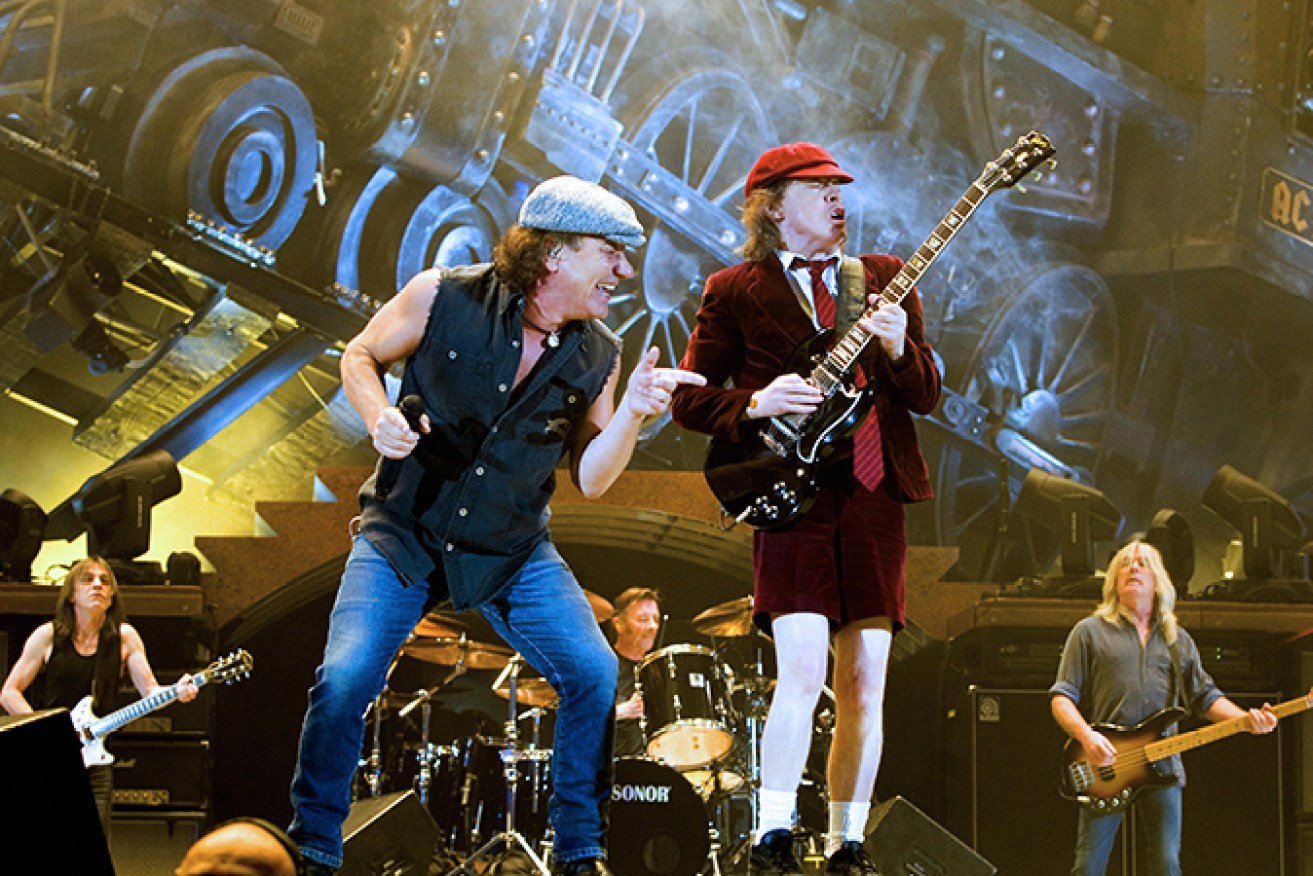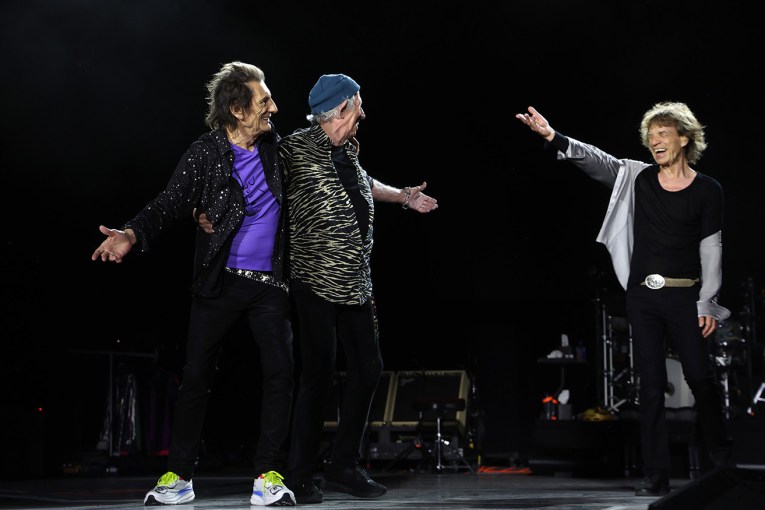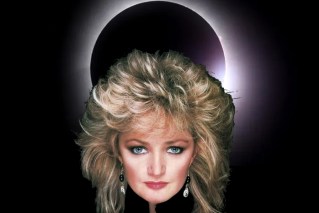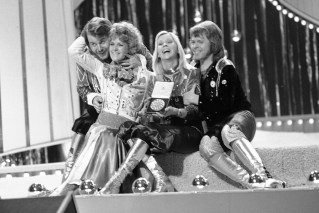Retirement rumours aside … AC/DC still rock


Getty
Few band’s have so many myths projected on to them as AC/DC. As with most myths, many of them are wrong.
The legend of Bon Scott for example looms large in Australia although the truth is that Brian Johnson is the singer who brought the band its mega stardom. Johnson was the more soulful singer and it’s Johnson who most of the group’s millions of fans think of when they they headbang to ‘You Shook Me’.
The singer is incidental in AC/DC. The truth is that AC/DC was always Malcolm Young’s band.
Of the five Young brothers, Malcolm was placed behind George and in front of Angus. As the prime mover in Australia’s greatest band, the Easybeats, George showed the way for his brothers – simple, escapist songs. Angus was the perfect vessel to express this vision; a gifted guitarist and a consummate showman.
By the age of 15 Malcolm was playing in bands around Sydney and Newcastle but his destiny always lay close to home. Once he and Angus formed their partnership in 1973 under the mentorship of big brother George and sister Margaret, the die was cast. The template for songwriting was a mixture of Chuck Berry and Benny Hill – simple stories that were slightly naughty.
Other musicians came and went until in 1974 the Young’s found the right singer Bon Scott. Some seven years older than Malcolm, Scott had lived the bad boy lifestyle and his lyrics had the ring of truth. His songs extolled the joys of rock & roll, and sniggered about women. As the wave of feminism crested, Scott’s lyrics were unashamedly sexist and borderline offensive. It added to the band’s cartoon imagery.
As the wave of feminism crested, Scott’s lyrics were unashamedly sexist and borderline offensive.
Underneath the stories of fat women spreading VD there was an amazing bond being created between two guitarists. The core of AC/DC is the way that Malcolm and Angus’ guitars mesh together. There’s a symbiosis created there that is almost spiritual. Hearing that almost mystic groove is the real attraction that brings people back to AC/DC and the two of them have done nothing for the past forty yeas except perfect the performance of that groove.
George Young and his partner Harry Vanda had access to Alberts’ Productions – a significant music production house with its own studios. It was here in Sydney that the first three AC/DC albums were perfected. The essence always being to keep it simple.
The Highway To Hell album was something of a breakthrough, selling strongly in the UK and making inroads into the US
When Scott died of alcohol poisoning in 1980, the Young brothers knew they were sitting on their classic album; most of the songs for Back In Black were ready.
AC/DC had built a strong audience base in the USA and Britain. They had the prefect producer in “Mutt” Lange. No doubt there was a genuine and profound sadness at Scott’s passing but AC/DC was always about the Young brothers. After a short search they found Brian Johnson who had the right sensibilities and a better voice than Scott.
Back In Black was the group’s perfect album. There was no searching sentimentality about their fallen comrade. They just pushed on. The less real life intruded into AC/DC’s material the better it was for everyone. Back In Black was followed by For Those About To Rock We Salute You and other triumph. Years of touring turned the band into one of the most forceful rock acts in the world and their reputation climbed.
Years of touring turned the band into one of the most forceful rock acts in the world and their reputation climbed.
Johnson was prepared to create his own character with the Andy Capp headgear and his working-man outfits. Johnson and Angus Young are two cartoon images out front of a faceless backline. As Malcolm told Mojo magazine, “We stick to the same sounds. We put our amps on the same setting every night and, as Angus said the other day, we put out the same album every year with a different cover. We’re not about sitting around climbing up our own arse. Basically we’re a two-guitar band with three or four chords, though we might add another one if we’re feeling tricky.”
And so it followed – a series of albums: Flick of the Switch (1983). Fly on the Wall (1985), Who Made Who (1986), Blow Up Your Video (1988), The Razors Edge (1990), Ballbreaker (1995), Stiff Upper Lip (2000), Black Ice (2008) all selling roughly the same numbers, all fulfilling the promise to the fans that they would never change.
The fact that they didn’t win any plaudits from the critics was something of a badge of courage for the boys. To their credit that have never betrayed their working class, cynical roots.

Angus Young in action.
“If you look at The Beatles, they started out as a rock & roll band, playing in Hamburg. They became really successful. And then they started doing things like Sgt. Pepper and Magical Mystery Tour,” said Malcolm. “But eventually they came back to playing straightforward rock & roll like ‘Get Back’. The Stones did much the same. We’ve learned from bands like that that it’s best just to stay where you’re at; you’re going to come back there anyway, so why leave in the first place? Why not simply work better and harder at what you’ve got?”
In the 1980s Malcolm retired from the road to dry out from a problem with alcohol and no one even noticed. By the late 1980s, AC/DC were finally being taken seriously.
By the late 1980s, AC/DC were finally being taken seriously.
They had outlasted the punk bands they came up with. They had outlasted the big hair bands of the 1980s. They had never deviated from their original formula. They had not tried to write a concept album or an opera; they had not pushed their envelope and their sheer Glaswegian stubbornness eventually also won over the critics.
Record sales were also impressive. Back In Black, which has never been high on any serious critic’s list, gradually sold 50 million copies and remains the third biggest selling album by any rock & roll band – an achievement that is unlikely to ever be surpassed.
The band’s subsequent tours have all been massive successes. Their forays to the Soviet Union and the Third World have seen some of the biggest rock & roll shows of all time.
Australia has always embraced AC/DC as one of our own. Certainly there is some Australian blood in the band’s veins. However, realistically, AC/DC is not an Australian band. The Youngs arrived in Australia in 1963 and they were gone by 1976. The band as such spent less than five years here and never really gained a large live following in Australia.

Angus Young onstage with AC/DC.
While they played the Australian circuit of community halls, pubs and clubs they never approached the popularity of contemporaries like Sherbet and Skyhooks. Although they have in retrospect been adopted by Australians at the time, they were regarded in the ’70s as something of a novelty. The songs with Scott never quite achieved the wit or the excitement of the Easybeats’ catalogue.
Malcolm Young’s vision for a group playing simple songs perfectly has meant that in 40 years, AC/DC’s material is as fresh as it was in 1973.
In another 40 years, teenagers will snigger and shake to the Young’s groove.
Toby Creswell is a music journalist and pop-culture writer. He was editor of Rolling Stone and a founding editor of Juice.







